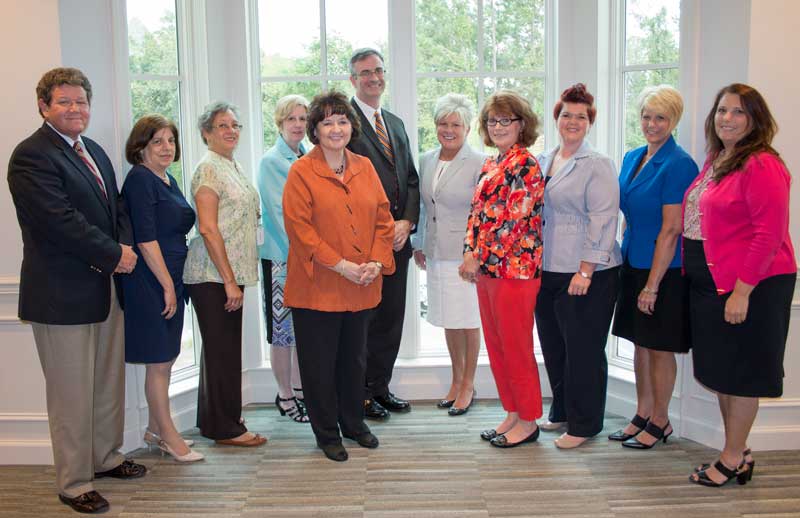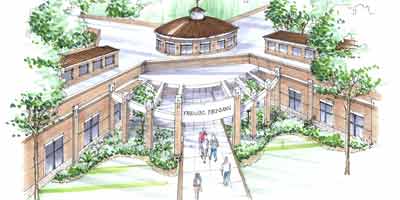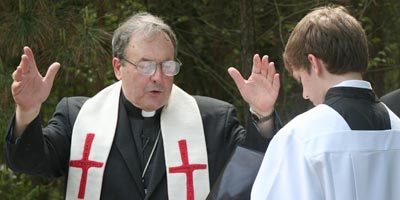
CHARLESTON — Catholic schools in the Diocese of Charleston have had some weighty discussions on whether they should convert to a 10-point grading scale in order to remain competitive with, and provide the same scholarship opportunities as, public schools.
Before the start of school, South Carolina’s State Board of Education approved the adoption of a 10-point scale for public schools for the 2016-17 year. Molly Spearman, state superintendent of education, said the move was made to provide students an equal opportunity to compete with their counterparts in neighboring states for college admission, athletic and academic scholarships, and national awards.
Jacqualine Kasprowski, principal of Cardinal Newman School in Columbia and associate director for secondary education for the diocese, said Catholic high schools want to provide the same opportunities for their students, but at the same time, don’t want to water down their academic standards.
One of the sticking points, Kasprowski explained, is that under the state’s 10-point scale a grade of a 60 is considered passing. Administrators for Catholic high schools in the diocese unanimously agreed that a 60 does not demonstrate mastery of a subject, and so in the end rejected the 10-point scale.
What they are doing instead is calculating two different grade point averages — one for the schools’ 7-point system and another using the state scale. Both GPAs will be submitted with applications for colleges, scholarships and awards, which means Catholic students will have the same opportunity as everyone else to receive South Carolina Life, Hope and Palmetto Fellow scholarships, Kasprowski explained.
The pros and cons of the 10-point scale was one of several pressing topics discussed at the Province Superintendent Meeting in Charleston recently, which was attended by representatives from the National Catholic Educational Association, the Archdiocese of Atlanta, and the dioceses of Raleigh, Charlotte, Savannah and Charleston.
Sandra Leatherwood, diocesan director for Catholic education, said they also compared notes on social media policies, ecumenical sensitivity, and how Title IX — which prohibits sex-based discrimination in schools that receive federal funding — might impact private schools.
Title IX, which was passed in 1972, recently became an issue for schools when the federal government cited the law as protecting the rights of transgender students and their choice of which bathroom to use.
Although private schools typically don’t accept federal funding, Leatherwood said it is a topic that the diocese must be sensitive to.
One of the most engaging discussions involved ecumenical sensitivity and the need to embrace families from all cultures and make them feel welcome. Leatherwood said there are many Hispanic families in the parishes, but their children aren’t in the schools, and they want to change that.
“If it’s an issue of cost, we will find a way to make it work,” she said, pointing out that filling empty seats in a classroom does not change a school’s overhead costs a bit.
In an effort to reach out, schools are celebrating culturally relevant saints and holidays, and some have added a Spanish Mass. Leatherwood said Divine Redeemer School in Hanahan has added more than 30 students this way.



